- Home
- Penny Jordan
So Close and No Closer Page 4
So Close and No Closer Read online
Page 4
Even now sometimes, at night, she dreamt she could hear Julian’s mocking laughter as she wept and begged him not to touch her. Before their marriage he had been so gentle, so caring, so tender, so very much the considerate lover. She ought to have realised it was all simply a ploy, a façade, but she had been too thrilled and excited by his declarations of love, too eager to believe that he desired her to ever imagine that he was lying.
She had deserved to be hurt, she told herself ruthlessly, towelling her body dry with rough ferocity until her skin glowed a bright peach. Her sexuality was not something she ever allowed herself to think about these days. When she was in the company of other women she listened to their frank exchanges regarding their lover’s prowess or lack of it and sometimes their even franker descriptions of their own needs and desires, and, although she smiled and laughed and made the appropriate comments, inside her body felt dead. They may as well have been speaking in a foreign language when they described their pleasure, so different was her own experience.
She had never experienced sexual pleasure other than fleetingly and tenuously in those early days of their courtship, when Julian had teased her with kisses that promised so much and yet in the end meant so very little. Perhaps if she had not been so sheltered, so naïve, she might have realised the truth, might have queried the sincerity of a man who professed to desire her and yet at the same time seemed content with no more than a good-night kiss.
It had not been with desire that he had come to her on their wedding night but with rage and resentment, and with a determination to let her know exactly what role she was to play in his life. He had entered her brutally and ruthlessly, without making any attempt to prepare her for his possession, taking an almost sadistic satisfaction in her pain and shock, and then, when she had cried out, he had punished her for it, inflicting bruises and contusions on her pale skin which had taken days to heal.
After that first night he had never come back to her bed, and she had been too relieved to care. In that one short night he had ripped away the veils of innocence and naïveté which had protected her, and she had seen all that her marriage was going to be. She had lived in a state of shock after that, relieved that he continued to stay away from Parnham Court and yet at the same time too proud to seek advice from those who might have been able to help and advise her.
His death had brought about her release in more ways than one, and she had not been able to mourn for him. Now she was a different woman from that naïve, foolish nineteen-year-old girl. Now she reflected hardily that she was better off for what had happened to her, and her life as it was now was richer in all the things that mattered than it had ever been when she was her father’s pampered heiress.
She had no regrets about the loss of her father’s wealth, other than those that sprang from guilt caused by her knowledge that there were many, many needy causes that could have benefited from her inheritance. For herself, she was content as she was, and proud of her own small achievements and the progress she had made towards independence.
It was true, as her solicitor had warned her only this morning, that a bad summer, a freak thunderstorm, anything, in fact, that damaged her flower-crop, could jeopardise her financial position almost disastrously. She had very little money behind her. All the profits she had made so far had been ploughed straight back into the business and, although it was true that she had neither mortgage nor debts to worry about, she still had to live.
She pulled on her housecoat. It had been one of her father’s last Christmas gifts to her, worn and faded now but still comfortable and warm, even if it was a trifle girlish for a woman of twenty-five. There were very few clothes in her wardrobe. The expensive designer things she had bought as a teenager had either been sold or given away, most of them too outrageous to last for more than one fashion season. In the place of the silks and satins she had once worn, she now wore denim jeans and cotton sweatshirts—hardly the sort of thing one could put on for dinner with a man like Neil Saxton, she reflected wryly as she opened her wardrobe doors and checked abruptly.
Why should it matter what she wore? She had no desire to impress the man. Women adorned their bodies in silks and satins so that they would be pleasing to the male of the species, she reminded herself grimly. She had no desire to please the eye or the sexual appetite of any man.
She reached out for a pair of clean jeans and then hesitated, her pride, that same pride that had driven her to accept his invitation in the first place, making her check and turn instead to frown over the few formal clothes she possessed. There were a couple of suits, the one she had worn this morning and a heavier, more winter-weight one, which she wore for important business meetings with her bank manager or her accountant.
There was her raincoat, a classically cut trench-coat in a waterproof stone-coloured fabric, and a heavy navy winter coat she had splurged out on and bought for herself the previous winter. There were a couple of tailored linen dresses she had bought in a second-hand clothes shop which would have been eminently suitable for city shopping on a hot day, but were hardly the right sort of things to go out for dinner in, and then there were her two evening dresses. One was full-length and formal, and she kept that for the rare winter balls she was obliged to attend; the other—she reached out towards it, and then tensed—the other had been a gift from a client for whom she had done rather a lot of work.
Hannah Ford and her husband had moved into the area less than eighteen months ago. Originally from London, Tom Ford had been forced by ill-health to take a fresh look at his life-style. He had been a successful investment manager in the high-pressure field of corporate finance, but one heart attack and a threatened bypass operation had been enough to suggest to his employers that they should give him a sideways move to a country branch of his bank. Hannah, whose career as an interior designer was just beginning to take off, had given up her own work to come with him, and the move had paid off for them in more ways than one.
Determined not to allow him to feel guilty over the fact that she had given up a very promising post, Hannah had insisted on starting up in business on her own. Even she admitted that she was astounded by her own success. In fact, she had been so successful that Tom was now thinking of giving up his bank job completely so that he could handle the financial side of her business. As if that had not been enough, within six months of moving to the Cheviots Hannah had discovered that she was pregnant.
As she’d confided to Rue, at thirty-nine the last thing she wanted was to start a family, but, once Lucy Saffron Ford had arrived, no parents could have been more doting or adoring than Hannah and Tom, and Hannah was even talking about providing Lucy with a brother or a sister. Having seen one of Rue’s beautifully arranged baskets in the home of one of her clients, Hannah had lost no time in getting in touch with Rue and asking her to design some arrangements to complement her own colourschemes.
Astounded by the very modest fee Rue had asked, ridiculously low by London standards, or so Hannah had told her, she had presented Rue at Christmas with a beautifully wrapped, large box. Inside it, beneath layer upon layer of white tissue paper, had been a dress like no other Rue had ever seen. It had been designed by a friend of hers, especially for Rue, Hannah had told her.
It was black velvet, the softest black velvet Rue had ever seen, and cut so plainly yet so cleverly that it was only when it was actually on that the skill of its designer could truly be seen. The long-sleeved bodice moulded Rue’s soft curves and tiny waist; the slightly gathered tulip-shaped skirt skimmed her knees and hinted at the fragile curve of her hips; the ruffled bustle at the back added emphasis to the skirt and a formal touch to the dress, which drew everyone’s eyes to her whenever Rue wore it. She had told Hannah initially that the dress simply wasn’t her and at any rate was far too expensive a gift, but Hannah had looked so crestfallen, so hurt, that Rue had not been able to refuse to accept it.
Hannah had had a party on New Year’s Eve and she had insisted that Rue wear the dress t
hen. Rue had done, but despite the many flattering comments she had received from Hannah’s male guests she had not really been deceived. Men flattered and paid compliments because they wanted something; their words meant nothing and were not to be taken seriously, so she had held them at bay with a cool, assessing smile and an indifference which made Hannah, who was watching her, sigh with exasperation.
She knew nothing of Rue’s past other than that she had been unhappily married and was now a widow. She knew of Rue’s connection with Parnham Court from village gossip, but she was not the kind of woman to press for confidences that were not freely given, and she respected Rue’s right to her privacy, even while she deplored her friend’s determination to live her life completely excluding any members of the male sex, apart from the faithful Horatio.
Rue lifted the dress out of the wardrobe and held it against her. With her hair scraped back in a ponytail, and her nose peeling a little from sunburn, she was hardly the type of woman most suited to wearing such a very seductively sophisticated dress. She half made to put it back in the wardrobe, and then she remembered the way Neil Saxton had looked at her the first time they met. Before she knew quite what she was doing, she was putting on fresh underwear and zipping the dress closed.
She had never worn heavy make-up, and after she had brushed her damp hair into place she applied a hint of blusher to her cheeks and eye-shadow to her lids before coating her mouth with soft pink lipstick. Once she had finished, she eyed her reflection dispassionately, seeing only the woman that Julian had told her that she was—unfeminine, sexless, inadequate—not knowing that it was his inadequacy that had led to his cruelty to her.
She was half-way downstairs when she suddenly wondered what on earth she was doing and why she had dressed up to have dinner with Neil Saxton. She turned on the stairs, swiftly starting to unzip her dress as she did so. But it was too late.
In the kitchen Horatio growled and then barked, and as she stood there, frozen with indecision, she heard the front door clang. She had a moment’s cowardly impulse to stay where she was and simply hope that he would eventually get tired of waiting and go away, but as quickly as the thought formed she realised the idiocy of it and instead turned back reluctantly and went downstairs.
The stairs were to one side of the house, narrow and deeply angled and coming down into a tiny inner hallway. From there she walked through her study and opened the door into the narrow hall. It was still light outside, although because of the cottage’s tiny windows it was necessary for her to have the lights on inside.
Perhaps that was why Neil Saxton suddenly seemed so much taller than she remembered, she thought as she opened the door to him and he stooped to walk into the tiny hallway. It was barely big enough for one person, never mind two, and Rue found her body tensing as she caught the clear, fresh scent of his skin, faintly mixed with the cologne she recognised as the one he had worn before.
Like her, he had changed, and it came as rather a shock to discover that he was wearing a formal dinner-suit. Anger followed the shock. Had he hoped to intimidate and embarrass her by dressing so formally? Unaware that her feelings showed in a brilliant flash of her eyes as she looked directly at him, she heard him catch his breath lightly and focus on her.
Immediately her anger turned to suspicion as she read what she knew could only be pseudo-admiration in his eyes.
‘I’ll just put Horatio in the kitchen,’ she told him. ‘If you’d like to wait outside for me…’
‘Why?’ he asked her blandly. ‘Surely you aren’t frightened of being alone with me?’
His mockery annoyed her, all the more so because she suspected that he did actually know how very uneasy she was in his company.
‘Hardly,’ she told him crisply. ‘It’s just that this door only locks from the inside.’
He looked at the lock on the door and she saw him frown slightly.
‘You should have a safety chain put on this,’ he told her curtly, and than added, ‘You’re very isolated here. Don’t you ever feel afraid?’
Rue’s chin tilted.
‘No,’ she told him shortly, wondering what he would say if she told him her fears were all inner ones, fear of herself, of her own inadequacies and failings, rather than of the world outside. Failings of a type that this man probably never imagined could exist.
‘Mmm…’ he said thoughtfully. ‘You surprise me, a woman living on your own. I should have thought you would be a little bit more security-conscious.’
For some reason his words made a fine tremor of apprehension clench her body, and she said huskily to him, ‘Perhaps in future I shall be.’
She opened the door and held on to it until he had stepped back outside, firmly locking it behind him and then taking Horatio into the kitchen. Having locked the door and then checked it, Rue made her way round to the front of the house.
She gave a faint start as she realised that Neil was waiting for her on the front path. She had expected him to go straight to his car, and it was very unnerving to walk down the path knowing that he was there, two paces behind her. For some reason she could not fathom, his presence made her feel uneasy and threatened in a way that had nothing to do with the residual dislike of his sex which had been Julian’s bequest to her.
She had to wait while he unlocked his car door and, to her surprise, once he had freed the central locking system, he came round to the passenger door and opened it for her, not mockingly or teasingly, but so simply and automatically that she realised that it was an action he would perform for any member of her sex, no matter what her age or appearance.
As she gave him a stiff, ‘Thank you,’ his eyebrows quirked and as he looked down at her he said,
‘Ah, I see I have offended you, although why good manners should ever be offensive I’m afraid I’m at a loss to understand.’
Rue wanted to make some clever comment about his treatment of her as though she were incapable of opening the car door for herself being both demeaning and derogatory, but somehow or other the words simply would not form. In the past she had taken it as her due that men should open doors for her and generally protect and pamper her, but that had been before she realised what lay behind such paternalistic patronage.
And yet her body trembled slightly as she recognised her own weakness and was forced to admit that there was something very pleasant about being treated as though her comfort was of importance. Remember he wants your land, she warned herself, as she slammed the door closed and Neil came round to slide into the driver’s seat next to her.
That was what all this was about, no matter how much he might try to pretend otherwise: he aimed to flatter and coax her into a state of vulnerability by trying to conceal his real motives. A man of his means could obtain as many dried flower arrangements as he wished from anywhere without having to go to the necessity of entertaining a woman whose company and person could only bore him. No, the reason he had invited her to dinner was nothing to do with his desire to have her advice about suitable floral arrangements for his mother’s visit; he just wanted to soften her up so that he could get her to part with her land.
She tugged impatiently on the seat-belt and then frowned down at it as it refused to move. Next to her Neil pulled firmly on his and was just about to push the catch into the socket when he realised what had happened. He let his go and reached across her. As his head and torso filled the small space between her and the windscreen, Rue automatically tensed, fear making her blood run cold through her veins, her breath locked in her throat as she fought down the panic rising swiftly inside her.
‘It’s quite easy,’ Neil was saying calmly, ‘you just hold it like this and pull gently.’
Rue sat rigidly in her seat, arching her spine back against it, her stomach quivering with anxiety as Neil pulled the seat-belt across it and secured it to her side. He was so close to her that she could see the tiny lines fanning out from his eyes and the hard, masculine texture of his skin. She could see also the dark line of his sha
ven beard along his jaw and over his upper lip.
‘What’s wrong?’
The quiet question startled her. She had been lost in the bewildering discovery that, close to, the apparent hardness of his face was softened by the fullness of his bottom lip.
‘I…nothing,’ she floundered, desperately conscious of how odd her behaviour must appear.
‘There. I think you’ll find that’s secure now,’ he told her, tugging gently on the seat-belt and then straightening up to fasten his own. As he did so, he asked her quietly, ‘Am I so very like him?’
She had been fiddling with the clasp of her handbag, but now it fell nervously from her fingers and she stared at him, unable to control or conceal her reaction.
‘I…what do you mean?’ she asked him.
The smile he gave her made her shiver.
‘Come on, Rue. I wasn’t born yesterday,’ he told her grittily. ‘Ever since we’ve met you’ve been treating me as you might a rabid dog. Since as far as I know I haven’t done anything to merit such treatment, the only other explanation that comes to mind is that I must remind you of someone who does.’
‘Julian…Julian was fair,’ she told him, huskily and truthfully, and out of the corner of her eye she saw him frown as though her words were not the ones he had wanted to hear. But then, what man ever liked having his judgement questioned? He was wrong if he thought that he in any way resembled her late husband.
Julian had not been overly tall; about five foot ten. He had been fair-haired and blue-eyed. There had been something almost film-star-like in his boyish looks, whereas Neil had far too hard-boned and masculine a countenance to ever be called good-looking. But yet there was a resemblance, a connection. Not in the way that Neil looked, but in the reaction his presence caused her; in the very definite frisson of sensation that touched her nerve endings whenever he came too close to her.

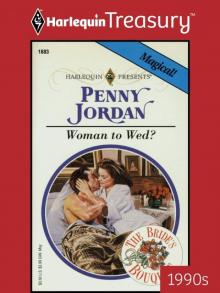 Woman To Wed?
Woman To Wed? Wanting
Wanting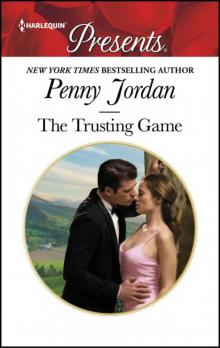 The Trusting Game (Presents Plus)
The Trusting Game (Presents Plus)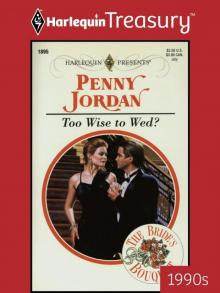 Too Wise To Wed?
Too Wise To Wed?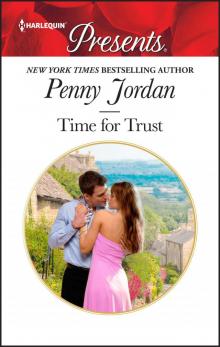 Time for Trust
Time for Trust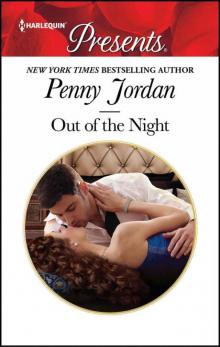 Out 0f The Night (HQR Presents)
Out 0f The Night (HQR Presents)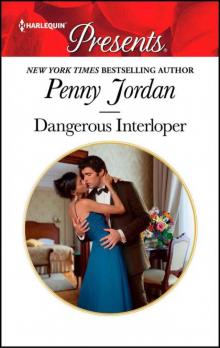 Dangerous Interloper (Lessons Learned II Book 8; HQR Presents Classic)
Dangerous Interloper (Lessons Learned II Book 8; HQR Presents Classic)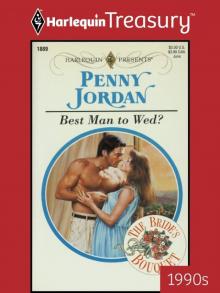 Best Man To Wed?
Best Man To Wed? They're Wed Again
They're Wed Again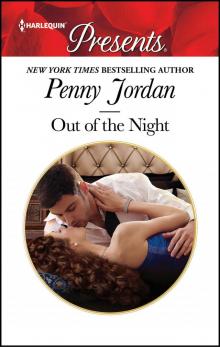 Out of the Night
Out of the Night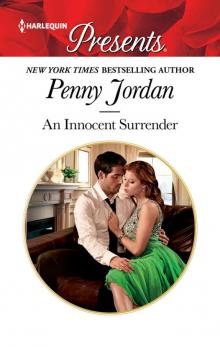 An Innocent's Surrender
An Innocent's Surrender Marriage: To Claim His Twins
Marriage: To Claim His Twins Deal With the Devil--3 Book Box Set
Deal With the Devil--3 Book Box Set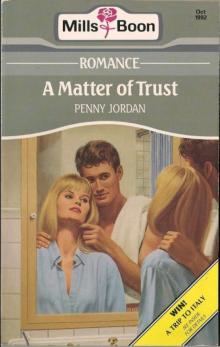 Matter of Trust
Matter of Trust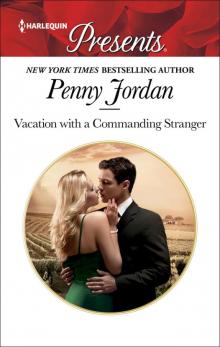 Vacation with a Commanding Stranger
Vacation with a Commanding Stranger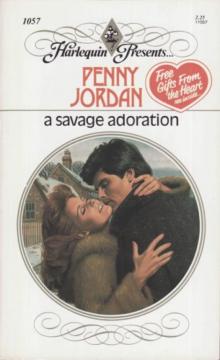 A Savage Adoration
A Savage Adoration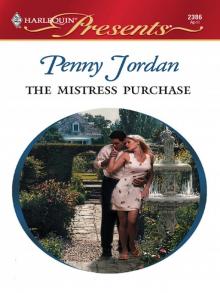 The Mistress Purchase
The Mistress Purchase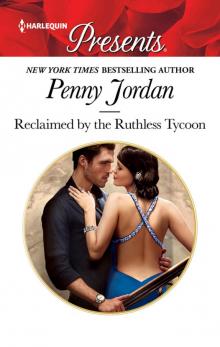 Reclaimed by the Ruthless Tycoon
Reclaimed by the Ruthless Tycoon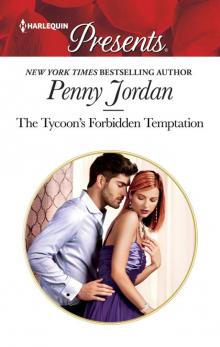 The Tycoon's Forbidden Temptation
The Tycoon's Forbidden Temptation Sinful Nights: The Six-Month MarriageInjured InnocentLoving
Sinful Nights: The Six-Month MarriageInjured InnocentLoving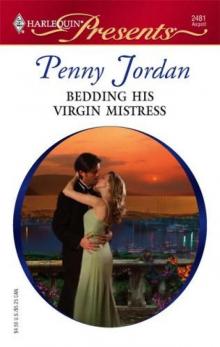 Bedding His Virgin Mistress
Bedding His Virgin Mistress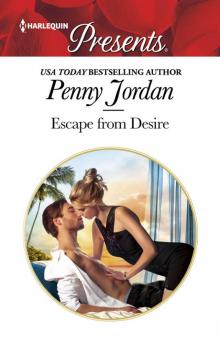 Escape from Desire
Escape from Desire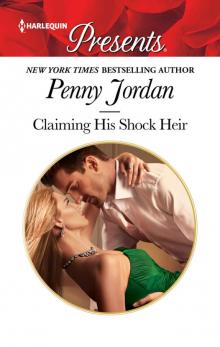 Claiming His Shock Heir
Claiming His Shock Heir Stronger than Yearning
Stronger than Yearning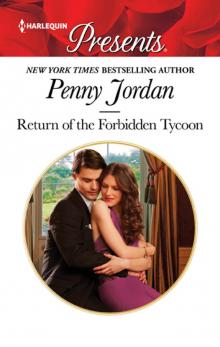 Return of the Forbidden Tycoon
Return of the Forbidden Tycoon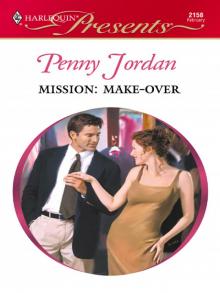 Mission: Make-Over
Mission: Make-Over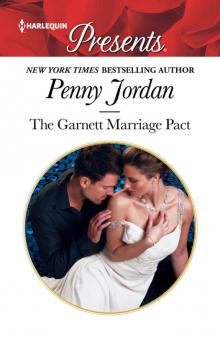 The Garnett Marriage Pact
The Garnett Marriage Pact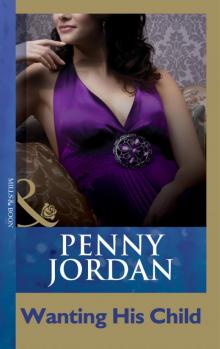 Wanting His Child
Wanting His Child A Little Seduction Omnibus
A Little Seduction Omnibus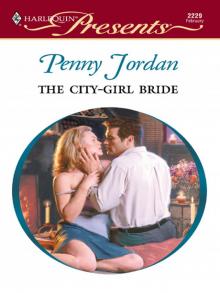 The City-Girl Bride
The City-Girl Bride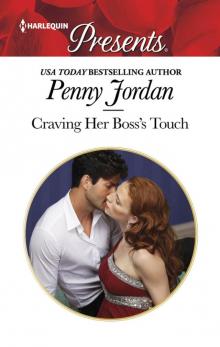 Craving Her Boss's Touch
Craving Her Boss's Touch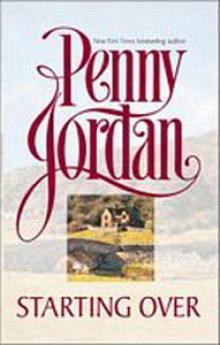 Starting Over
Starting Over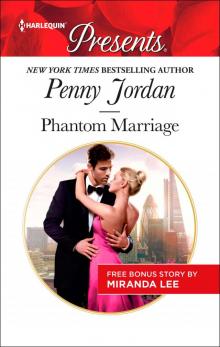 Phantom Marriage
Phantom Marriage The Italian Duke's Virgin Mistress
The Italian Duke's Virgin Mistress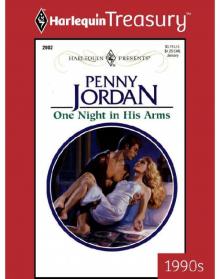 One Night in His Arms
One Night in His Arms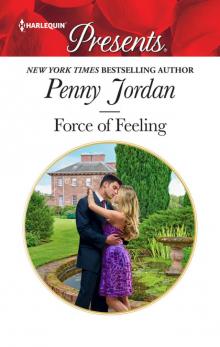 Force of Feeling
Force of Feeling Forbidden Loving
Forbidden Loving For Better for Worse
For Better for Worse Silver
Silver Rival Attractions & Innocent Secretary...Accidentally Pregnant
Rival Attractions & Innocent Secretary...Accidentally Pregnant A Bride for His Majesty s Pleasure
A Bride for His Majesty s Pleasure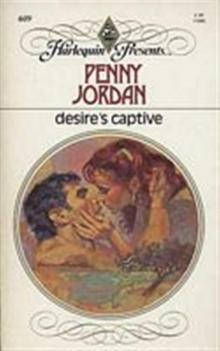 Desire's Captive
Desire's Captive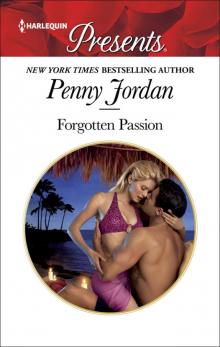 Forgotten Passion
Forgotten Passion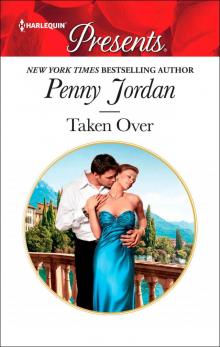 Taken Over
Taken Over Taken by the Sheikh
Taken by the Sheikh Sicilian Nights Omnibus
Sicilian Nights Omnibus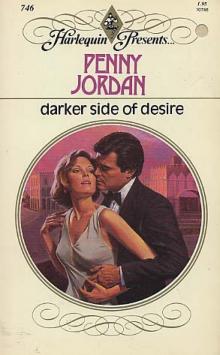 Darker Side Of Desire
Darker Side Of Desire A Royal Bride at the Sheikh s Command
A Royal Bride at the Sheikh s Command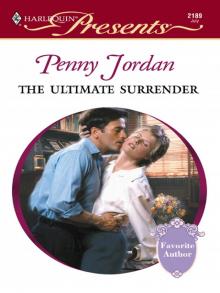 The Ultimate Surrender
The Ultimate Surrender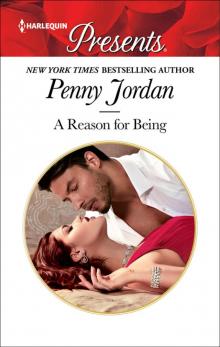 A Reason for Being
A Reason for Being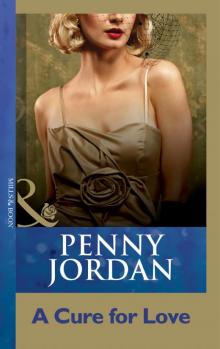 A Cure for Love
A Cure for Love Bought with His Name & the Sicilian's Bought Bride
Bought with His Name & the Sicilian's Bought Bride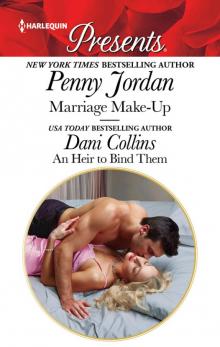 Marriage Make-Up & an Heir to Bind Them
Marriage Make-Up & an Heir to Bind Them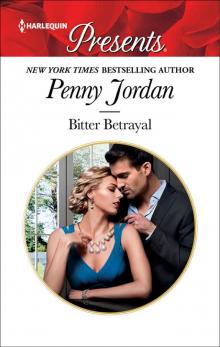 Bitter Betrayal
Bitter Betrayal Captive At The Sicilian Billionaire’s Command
Captive At The Sicilian Billionaire’s Command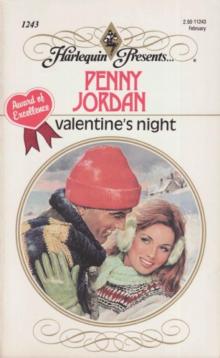 Valentine's Night
Valentine's Night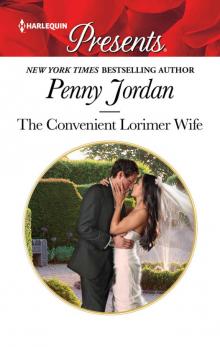 The Convenient Lorimer Wife
The Convenient Lorimer Wife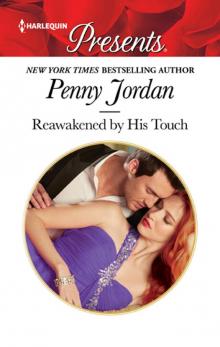 Reawakened by His Touch
Reawakened by His Touch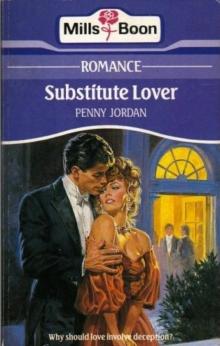 Substitute Lover
Substitute Lover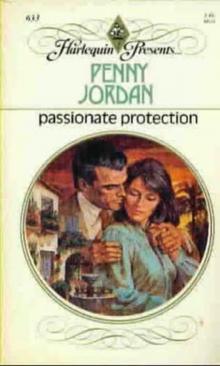 Passionate Protection
Passionate Protection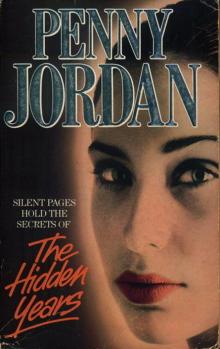 The Hidden Years
The Hidden Years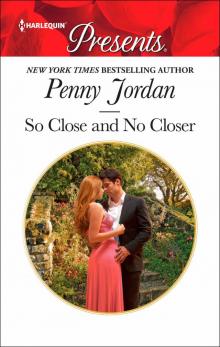 So Close and No Closer
So Close and No Closer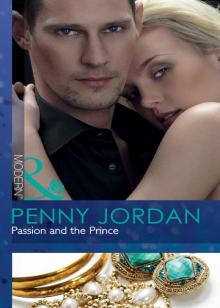 Passion and the Prince
Passion and the Prince Virgin for the Billionaire's Taking
Virgin for the Billionaire's Taking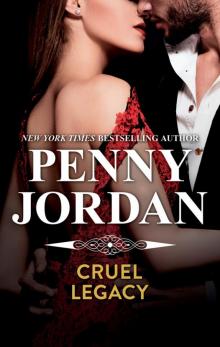 Cruel Legacy
Cruel Legacy Payment in Love
Payment in Love The Wealthy Greek's Contract Wife
The Wealthy Greek's Contract Wife Penny Jordan Collection: Just One Night
Penny Jordan Collection: Just One Night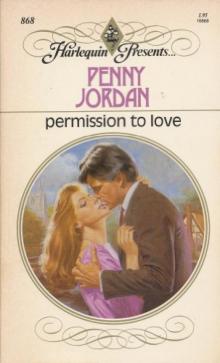 Permission to Love
Permission to Love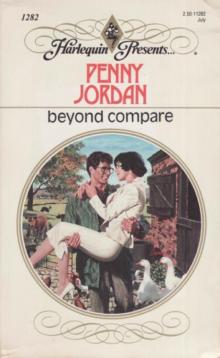 Beyond Compare
Beyond Compare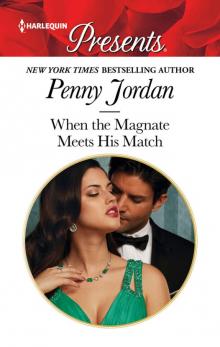 When the Magnate Meets His Match
When the Magnate Meets His Match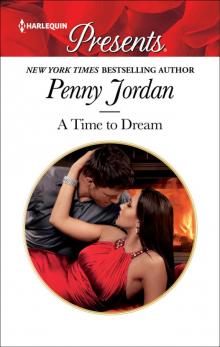 A Time to Dream
A Time to Dream Christmas Nights
Christmas Nights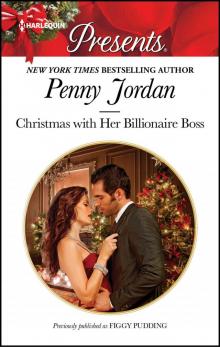 Christmas with Her Billionaire Boss
Christmas with Her Billionaire Boss The Sheikh's Baby Omnibus
The Sheikh's Baby Omnibus The Tycoon's Virgin
The Tycoon's Virgin Falcon's Prey
Falcon's Prey Mistress Of Convenience
Mistress Of Convenience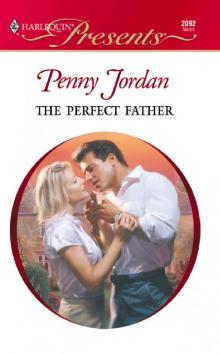 The Perfect Father
The Perfect Father Stranger from the Past & Proof of Their Sin
Stranger from the Past & Proof of Their Sin A Little Revenge Omnibus
A Little Revenge Omnibus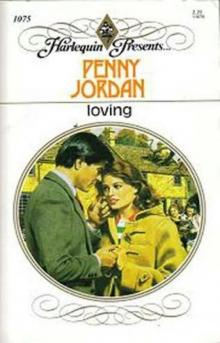 Loving
Loving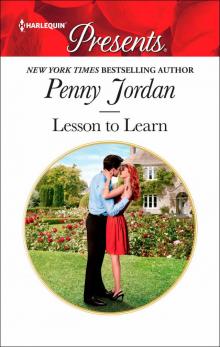 Lesson to Learn
Lesson to Learn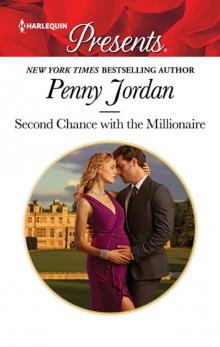 Second Chance with the Millionaire
Second Chance with the Millionaire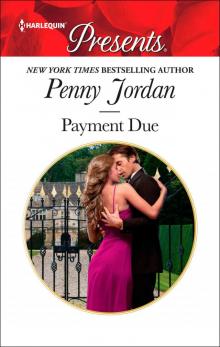 Payment Due
Payment Due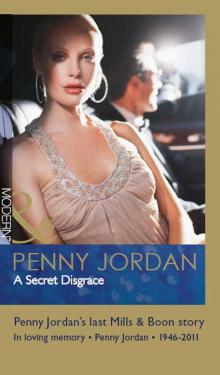 A Secret Disgrace
A Secret Disgrace Conveniently His Omnibus
Conveniently His Omnibus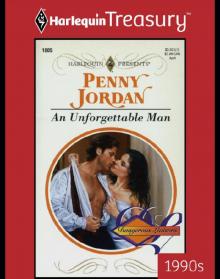 An Unforgettable Man
An Unforgettable Man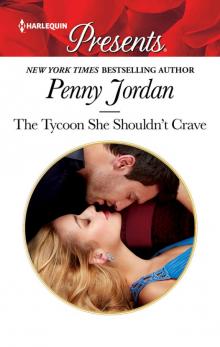 The Tycoon She Shouldn't Crave
The Tycoon She Shouldn't Crave Pride & Consequence Omnibus
Pride & Consequence Omnibus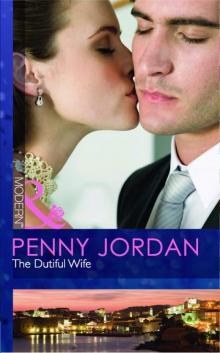 The Dutiful Wife
The Dutiful Wife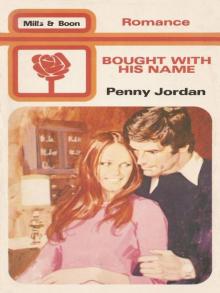 Bought With His Name
Bought With His Name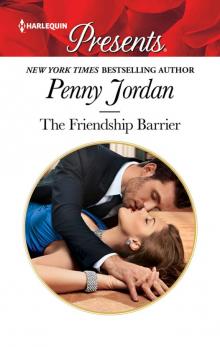 The Friendship Barrier
The Friendship Barrier High Society
High Society The Price of Royal Duty
The Price of Royal Duty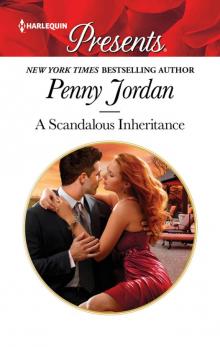 A Scandalous Inheritance
A Scandalous Inheritance At His Convenience Bundle
At His Convenience Bundle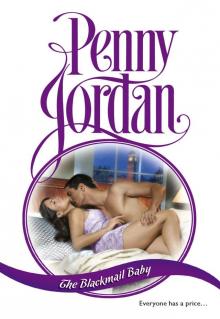 The Blackmail Baby
The Blackmail Baby Prince of the Desert
Prince of the Desert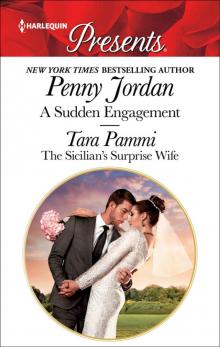 A Sudden Engagement & the Sicilian's Surprise Wife
A Sudden Engagement & the Sicilian's Surprise Wife Unexpected Pleasures
Unexpected Pleasures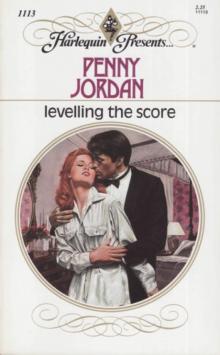 Levelling the Score
Levelling the Score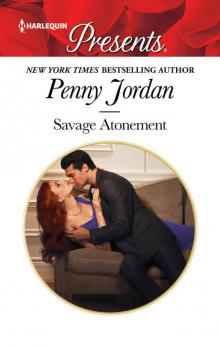 Savage Atonement
Savage Atonement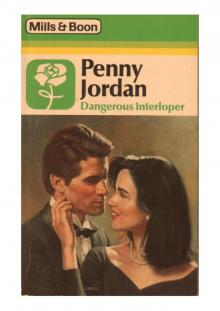 Dangerous Interloper
Dangerous Interloper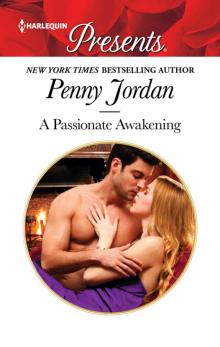 A Passionate Awakening
A Passionate Awakening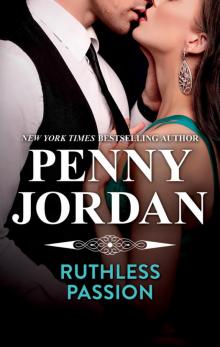 Ruthless Passion
Ruthless Passion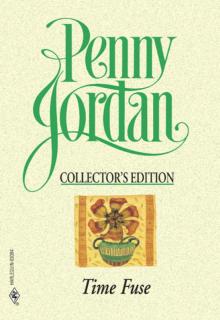 Time Fuse
Time Fuse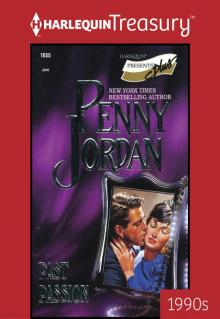 Past Passion
Past Passion Her One and Only
Her One and Only The Innocent's Secret Temptation
The Innocent's Secret Temptation A Stormy Spanish Summer
A Stormy Spanish Summer The Marriage Demand
The Marriage Demand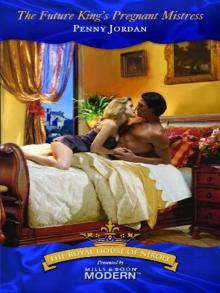 Future King's Pregnant Mistress
Future King's Pregnant Mistress Unwanted Wedding
Unwanted Wedding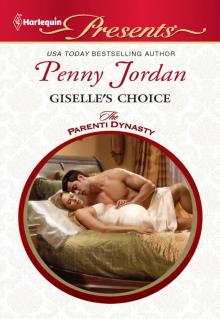 Giselle's Choice
Giselle's Choice Now or Never
Now or Never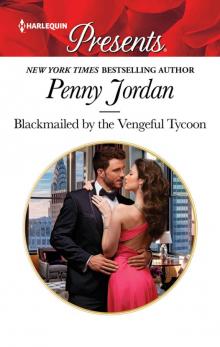 Blackmailed by the Vengeful Tycoon
Blackmailed by the Vengeful Tycoon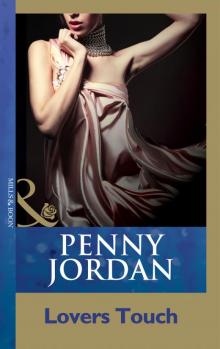 Lovers Touch
Lovers Touch Scandalous Seductions
Scandalous Seductions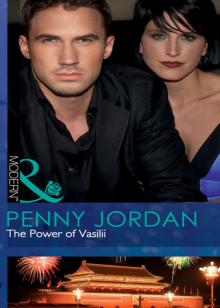 The Power of Vasilii
The Power of Vasilii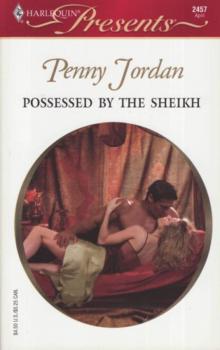 Possessed by the Sheikh
Possessed by the Sheikh It Happened At Christmas (Anthology)
It Happened At Christmas (Anthology) The Perfect Lover
The Perfect Lover The Flawed Marriage
The Flawed Marriage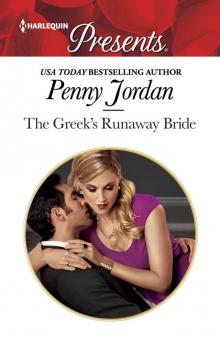 The Greek's Runaway Bride
The Greek's Runaway Bride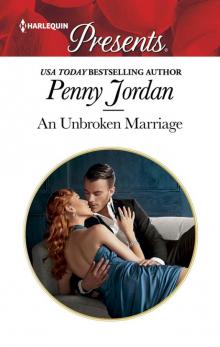 An Unbroken Marriage
An Unbroken Marriage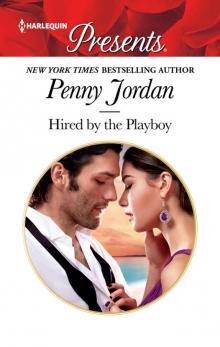 Hired by the Playboy
Hired by the Playboy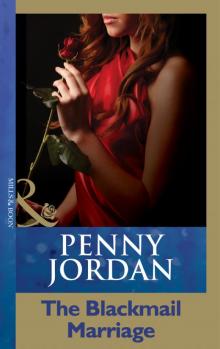 The Blackmail Marriage
The Blackmail Marriage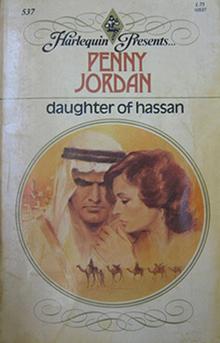 Daughter of Hassan
Daughter of Hassan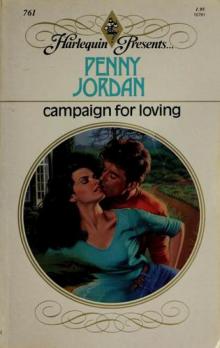 Campaign For Loving
Campaign For Loving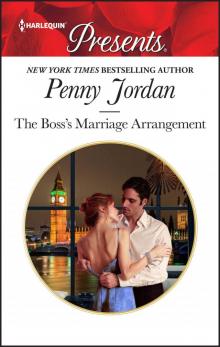 The Boss's Marriage Arrangement
The Boss's Marriage Arrangement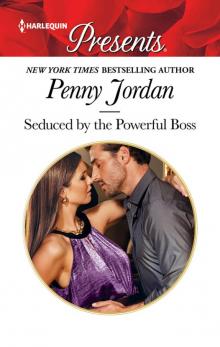 Seduced by the Powerful Boss
Seduced by the Powerful Boss Marriage Without Love & More Than a Convenient Marriage?
Marriage Without Love & More Than a Convenient Marriage?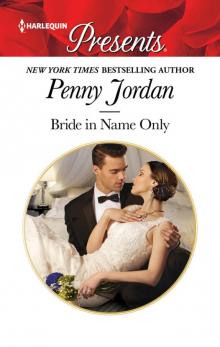 Bride in Name Only
Bride in Name Only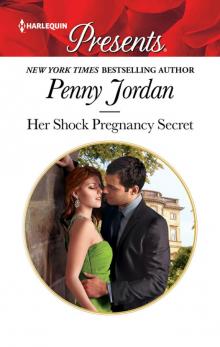 Her Shock Pregnancy Secret
Her Shock Pregnancy Secret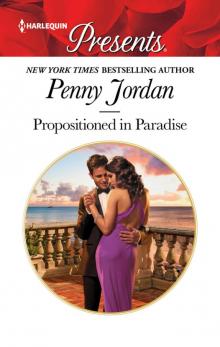 Propositioned in Paradise
Propositioned in Paradise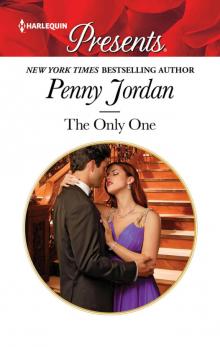 The Only One
The Only One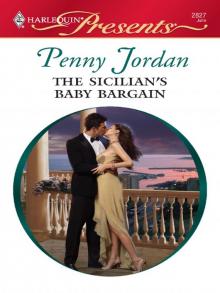 The Sicilian s Baby Bargain
The Sicilian s Baby Bargain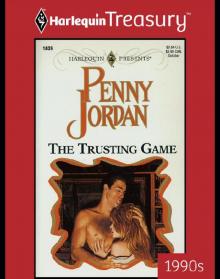 The Trusting Game
The Trusting Game The Most Coveted Prize
The Most Coveted Prize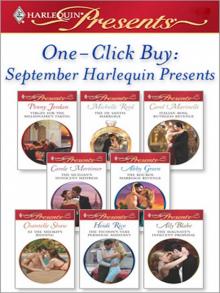 One-Click Buy: September Harlequin Presents
One-Click Buy: September Harlequin Presents In Her Enemy's Bed
In Her Enemy's Bed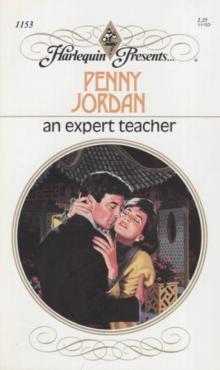 An Expert Teacher
An Expert Teacher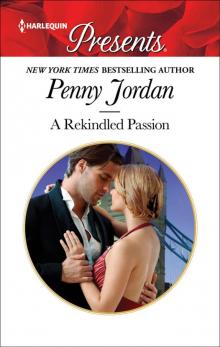 A Rekindled Passion
A Rekindled Passion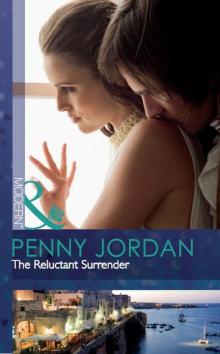 The Reluctant Surrender
The Reluctant Surrender Shadow Marriage
Shadow Marriage A Scandalous Innocent
A Scandalous Innocent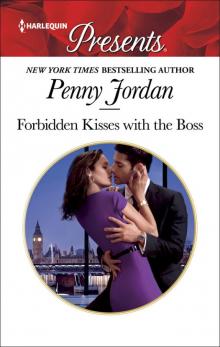 Forbidden Kisses with the Boss
Forbidden Kisses with the Boss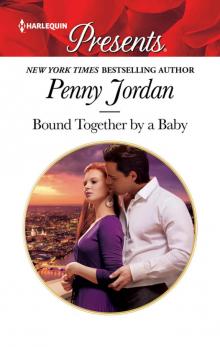 Bound Together by a Baby
Bound Together by a Baby Second-Best Husband
Second-Best Husband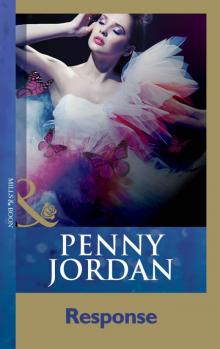 Response
Response His Untouched Bride
His Untouched Bride A Kind of Madness
A Kind of Madness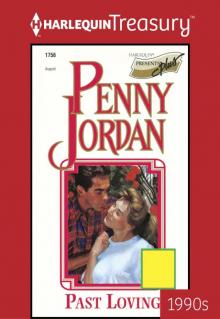 Past Loving
Past Loving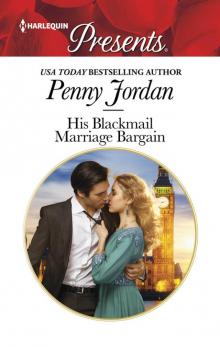 His Blackmail Marriage Bargain
His Blackmail Marriage Bargain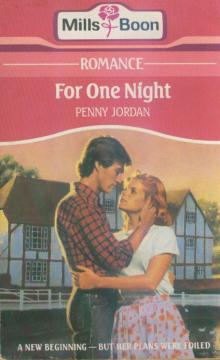 For One Night
For One Night Legally His Omnibus
Legally His Omnibus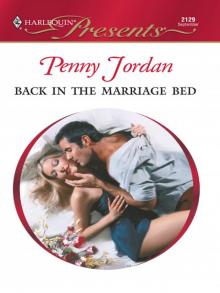 Back in the Marriage Bed
Back in the Marriage Bed Man-Hater
Man-Hater